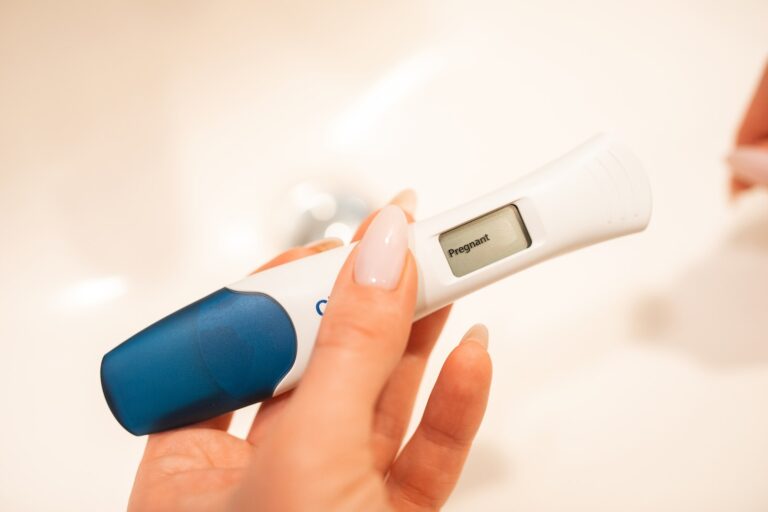Getting pregnant after sex isn’t always as simple as “how long is a piece of string?”
It can take days for sperm to find an egg and fertilize it, and another week or so for the fertilized egg to implant in your uterus. If you’re TTC, knowing this timeline can help you optimize your birth control strategy.
Fertilization
A lot of people think that sex leads to pregnancy, but there’s so much more that goes on than simply the egg and sperm meeting. In order for a pregnancy to occur, sperm must first travel to the egg and then attach to it. Then the embryo must grow and develop into a fetus. If that sounds complicated, it is.
If you’re trying to conceive, it’s important to know your fertile window. This is the timeframe during which an egg can be fertilized, and it typically happens within 12 to 24 hours after ejaculation. However, because sperm can live for up to five days, you can technically have unprotected sex up to five days before ovulation and still get pregnant.
Once the sperm and egg meet, they have to make it through a process called implantation. This takes three to eight days and is often accompanied by pain, tenderness or spotting. During this time, the body produces key pregnancy hormones like estrogen and progesterone.
Until the embryo is implanted in the uterus, you will not be able to tell if you’re pregnant. This is why it’s so important to practice safe sex and use birth control as needed, especially during the fertile window. You can also talk to a fertility specialist for additional information about ovulation, fertilization and pregnancy.
Embryo Implantation
It takes days or up to a week for the fertilized egg to implant in your uterus and for pregnancy to officially begin. Once the fertilized egg enters your uterus, it aligns with a spot on the lining of the endometrium and a type of cell called trophoblast cells invades it. The embryo then attaches and forms a tiny sac of blood vessels that is called an amniotic sac.
You can’t feel implantation, but the process may cause light spotting or cramping. Some women also experience a form of spotting that is sometimes mistaken for their period, and it usually lasts for about a day or two. This is called implantation bleeding, and it’s actually when the fertilized egg attaches to the uterine lining.
Once implantation occurs, your body begins producing the hormone progesterone. This hormone triggers early pregnancy symptoms, which include changes in your breasts (feeling tender or swollen), morning sickness, frequent urination and fatigue.
Conception can take place as soon as sperm enters the vagina, but a woman isn’t considered pregnant until the fertilized egg implantes in her uterus. Unprotected sex can happen within minutes of sexual intercourse, but the odds of getting pregnant are much better when sex occurs at least a week before your next expected ovulation date. This gives the sperm time to reach the egg and fertilize it.
Early Pregnancy Symptoms
There are many early pregnancy symptoms that might indicate you’re expecting. Most of these are similar to those you might experience during your period, including spotting and cramping. If you notice any of these symptoms in the weeks after sex, they could be a sign that you’re pregnant.
Spotting can occur when a fertilized egg implants into the lining of your uterus, which usually happens about six to 12 days after sex and ovulation. This spotting is light and can look similar to menstrual bleeding. Occasionally, women may even mistake it for the start of their periods.
Another early pregnancy symptom is fatigue. This is caused by changes to your hormone levels and is a normal part of the pregnancy process.
Headaches are also common during the early stages of pregnancy, and they can sometimes be accompanied by nausea. This is a result of the extra hormones your body produces, including estrogen and progesterone.
Frequent urination is another early pregnancy symptom, as your body is producing more fluids to support the fetus. This can often cause you to rush to the bathroom more frequently, especially at night.
Taking a Pregnancy Test
There are many ways to get pregnant, but the simplest way is for an egg to be fertilized by sperm. While it’s true that unprotected sex leads to pregnancy, there are various processes that must occur for the embryo to implant in the uterus, and this takes time. It could take up to 10 days after sex for an at-home pregnancy test to show a positive result, and even longer for the embryo to actually be implanted.
If you’re concerned about getting pregnant, you can use an ovulation predictor kit to track your ovulation cycle and learn when an egg is released. This can help you maximize your chances of conceiving, and some people even choose to have sex every day during their most fertile window.
The best time to take a pregnancy test is a week after you miss your period. This is because the body only produces hCG in large amounts if an egg has been fertilized, and this is what pregnancy tests detect.
If you’re anxious to know if you’re pregnant, a doctor can perform a blood test to determine how much hCG is present. They may also ask you to urinate into a sample cup, and this will give them an idea of how far along you are. This test is more accurate than home tests, as it provides a quantitative measurement of the amount of hCG present.
See Also:



